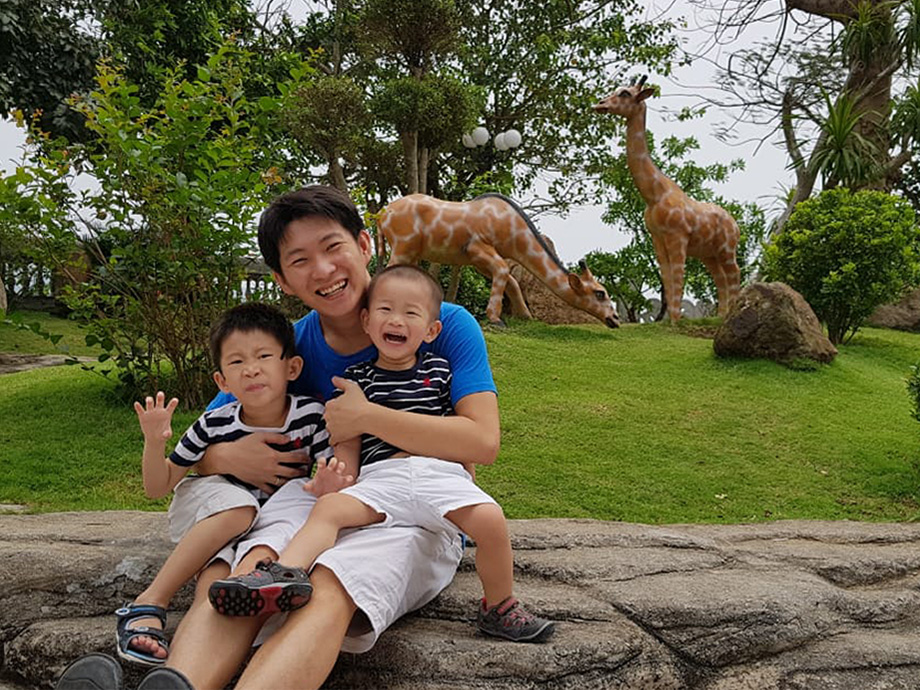Financial Planning | Personal Finance | Article
Hunting for Retirees by a Temple
by Sophia | 5 Aug 2019 | 7 mins read
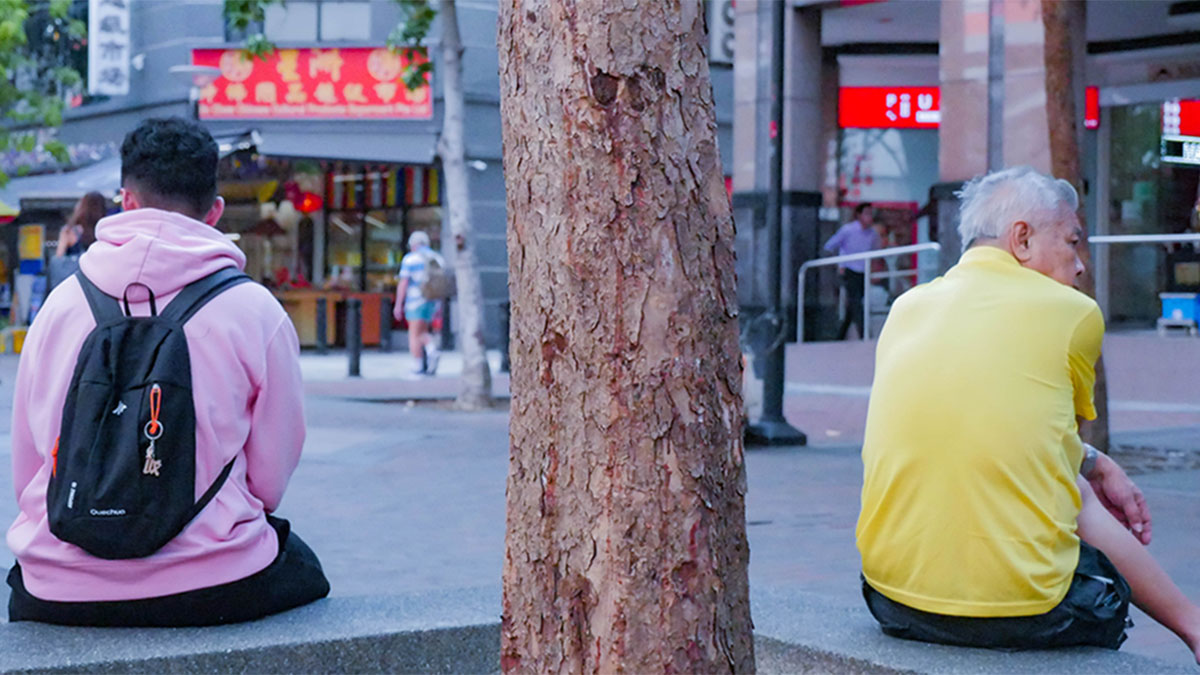
It’s an unforgiving, blazing hot afternoon, and I’m wandering around the streets of Bugis with my intern, in front of an old Chinese temple. In the air is the thick smell of smoke and incense.
Our throats are dry and parched. We look no different from ghouls walking in broad daylight, shoulders sagging and backs bent.
Around us, the retired and elderly mill about, selling flowers, incense, and the occasional fortune-telling session. Others, without a stall to tend, simply sit around on benches and stare into space. If the oppressive sun is bothering them, they don’t show it on their faces.
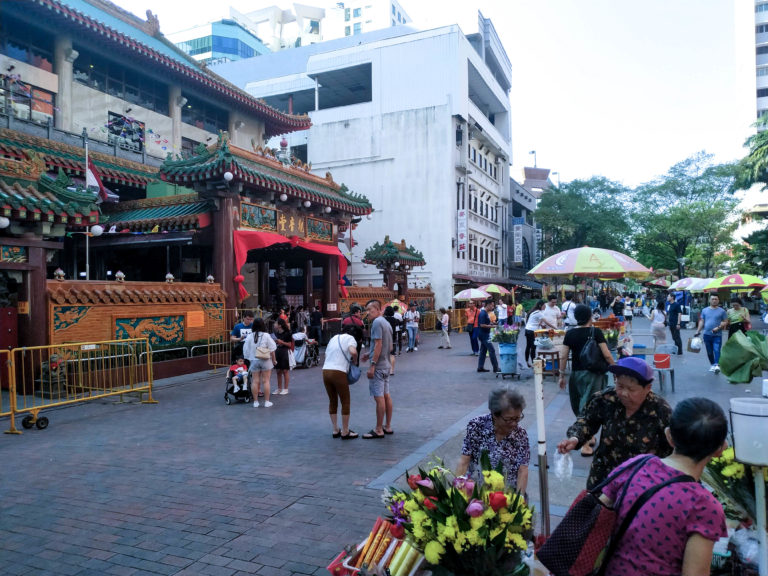
Ah, retirement.
We were braving the heat for a purpose: to talk to these elderly people and ask them about their lives back in the good old days, and how different it is today. They’ve seen it all, anyway – and we were curious to know their stories, and how they were getting on with retirement.
A glimpse into the future
We stumbled upon a fortune-telling uncle who was manning his booth, just a few feet away from the temple entrance.
83 this year, he claimed to have been telling fortunes for over forty years.
We spent a few minutes discussing my fortune before asking him more about his life.
“How different are things now in terms of price, how much they cost?” I asked.
“They’re more expensive, but you can still find cheap food if you know where to look,” he replied snappily.
“Do you miss the good old days? Were things more affordable?” I asked.
“Life goes on regardless,” he said cryptically, yet correctly divining the future.
“I’m already so old, nothing really matters,” he finally concluded. “I might die at any time.”
He must have got annoyed at the questions and bowed his head, closed his eyes, and told me he was going to take a nap.
Selling ice cream for fun
Our fortunes did not improve in our search for chatty-retirees; we faced a handful of rejections. Possibly due to the oppressive heat (or my unpolished Mandarin), uncles and aunties waved us away, busy with just sitting in the sun and zoning out.
And it was difficult to explain what an online blog was in mandarin.
After about half an hour of going from one glaze-eyed uncle to another, I decided to speak with a cheerful-looking auntie who was running an ice cream cart near the bustling Guanyin temple.
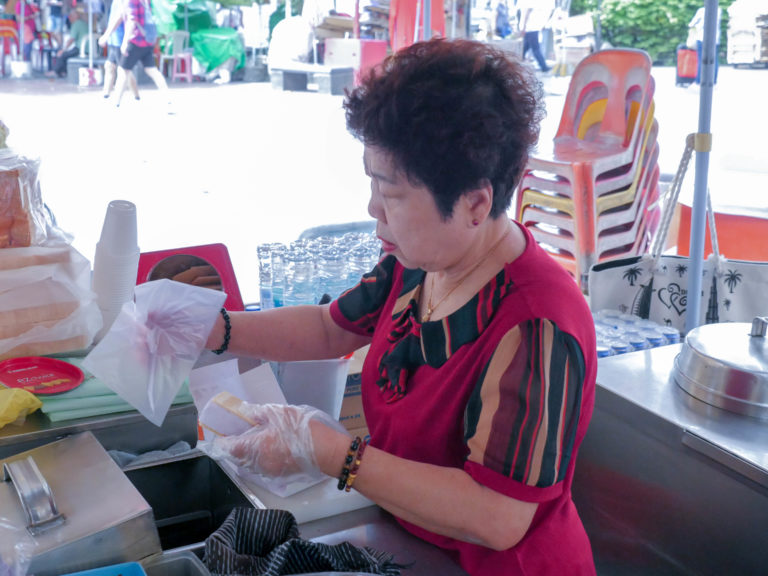
“Back then, I made clothes for a living, and fixed them too,” she recounted. “But it’s been so long, I don’t remember how much I earned. It probably wasn’t much.”
I took the chance to buy yam ice cream from her as I asked more questions about the cost of living in Singapore now, and how she felt about it.
“Things are more expensive now,” she acknowledged, without going into specific numbers, citing poor memory. “But life isn’t tough.”
“My children give me money every month, so I don’t have much to worry about.”
“So why are you selling ice cream?” I asked. “Earning some extra pocket money?”
To this, she laughed and shook her head. “This isn’t my stall. I don’t earn money from this; I’m just helping a friend manage his cart while he’s out collecting supplies.”
Better than staring at walls in retirement
We later approached another auntie selling flowers and incense for worshippers visiting the temple. In her late sixties, she welcomed me with a smile and conversed in English, and recounted her job history.
“I used to work in a factory,” she said, “doing quality checks on radio parts and other electrical components. After that job, I quit, and worked for Apple.”
Wait, like, Apple Apple?
“I checked Apple computer parts and did that for a long time,” she went on. “I didn’t earn much, but it was good enough for me.
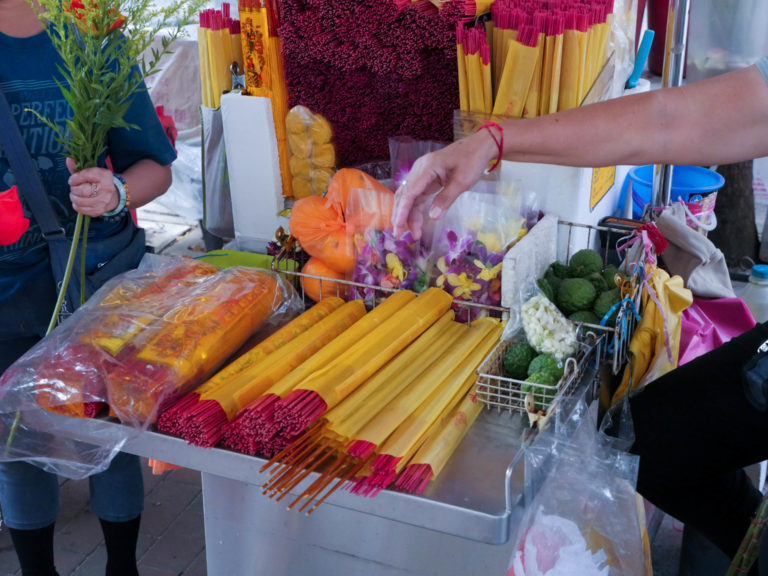
“Things were much cheaper back in the day, noodles cost less than $2. But I think today’s food prices aren’t that bad,” she said, multitasking between answering my questions and handling the occasional customer on their way to the temple.
On the topic of living as a retiree, she didn’t have much to worry about. “My kids give me a bit of money. And I haven’t used up my CPF yet!” she declared. “I still keep all my money inside there. I’ll only use it if I need it.
“The only issue about retirement for me is that I have nothing to do. And I don’t want to sit at home all day and stare at my four walls,” she went on. “So that’s why I’m selling flowers here.”
“Do you earn a good amount from this?” I asked.
“No. I’m just doing this for fun,” she said, echoing Ice Cream Auntie’s response. “This is my cousin’s stall, and sometimes she gives me a bit of pocket money, but I’m actually just very bored at home.”
On her life so far, she had this to say: “I think it’s been good. I had jobs in my younger years, and now my children are taking care of me. I just don’t want to waste the rest of my life now and sit at home all day, you know?”
25-cent bus rides and $200 salaries
I gave up on my Mandarin and went to look for makciks around the nearby Sultan Mosque. We found Madam Asma, now well into her sixties, sitting by Golden Landmark mall on a separate afternoon sitting by a fountain, waiting for her youngest child.
We asked her about the good ol’ days, like what was the equivalent of bubble tea of yesteryear. she recounted, “Things were a lot cheaper back then, like paying 25 cents for a bus ride, or just 10 cents for kacang putih.”
Her first job was as a clerk at a textile import company, where she earned $200 a month. Which sounds almost illegal when referencing the starting salaries of today, but she assured us that it was enough. “I could even shop at Robinson’s – this was before the fire,” she said, referencing an unfamiliar-to-me event in history.
It’s hard to fathom that starting salaries – and living expenses – have had a 10× increase within a single generation.
Today, she’s fully retired and living off her CPF monies and an allowance from her older children.
Times are changing
Of course, while our surveys was a minuscule sample of Singapore’s elderly population, but most of those we spoke with seemed to have almost stumbled upon retirement. When I asked whether they had any planning (such as projecting one’s needs for retirement) the replies roughly ran along the lines of, “work and save money lor.”
Which perhaps explains why almost all whom we spoke to received some form of support from their children.
But during our conversations, one thing that stood out was that the elderly didn’t have the vocabulary for inflation, only that “things have become more expensive.” It’s a simple view, but perhaps it is all they know and cannot explain it any other way.
But perhaps inflation is a young person’s problem.






